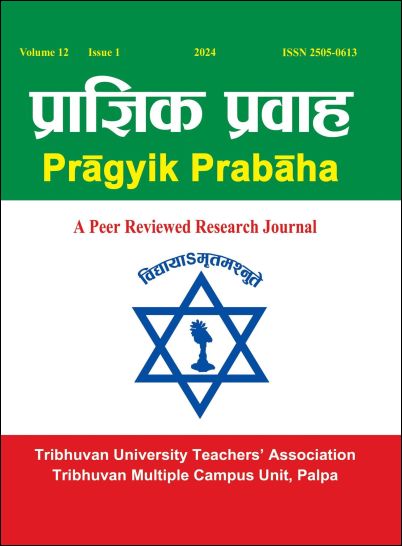Transforming Educator Growth: Professional Development at Tribhuvan University
DOI:
https://doi.org/10.3126/pp.v12i1.69972Keywords:
academic excellence, life-long learning, professional growth initiatives, teacher competencies, navigating challengesAbstract
Professional development is an inevitable facet of our life. The study aimed to explore the teachers’ professional development at Tribhuvan University. To achieve the objective, I used explanatory sequential design under mixed-methods research. The data were collected from 30 teachers of a constituent campus of TU using a set of questionnaires as a research tool. The findings reveal that more than 55% teachers strongly agreed with the importance of academic degrees for better classroom performance. Less than half of them were satisfied with their reading, and writing position. Similarly, many teachers (93%) were not satisfied with their research position. More than 90% teachers have published general articles, but only 10% teachers published their academic books. Many teachers come to the classroom with full preparation; they talk to their colleagues about their issues and professional pursuits, support one another in taking professional actions, and insist on taking professional actions with the campus administration. Different strategies such as reading and writing, achieving a higher degree, doing action and mini-research, writing articles and books, attending workshops and seminars, networking, and self-monitoring are the key strategies for their professional development. The present study can be equally beneficial not only to university teachers but also for to the teachers who wish to develop their teaching career in one hand and writers, researchers and trainers on the other.




